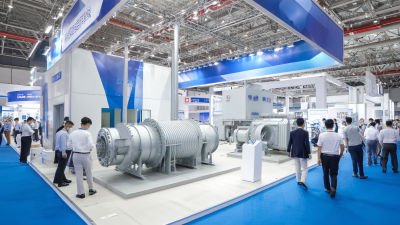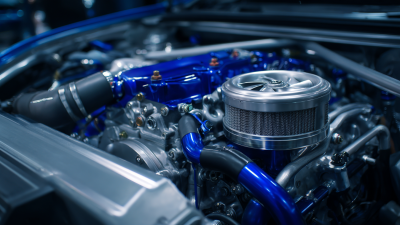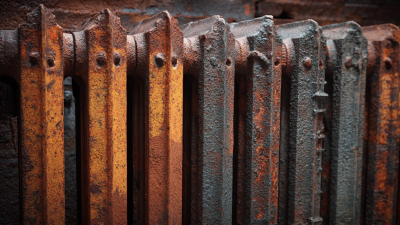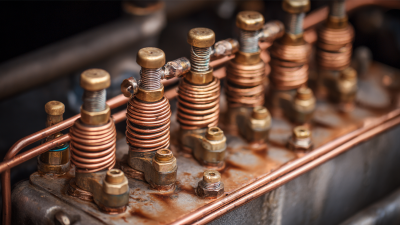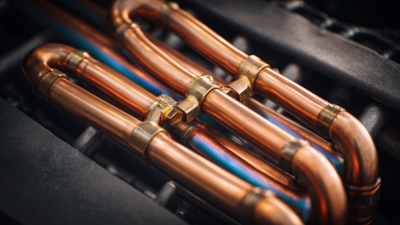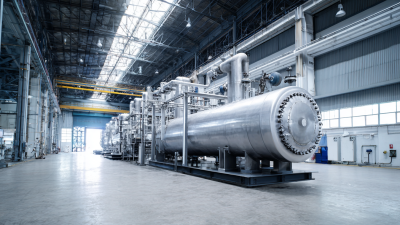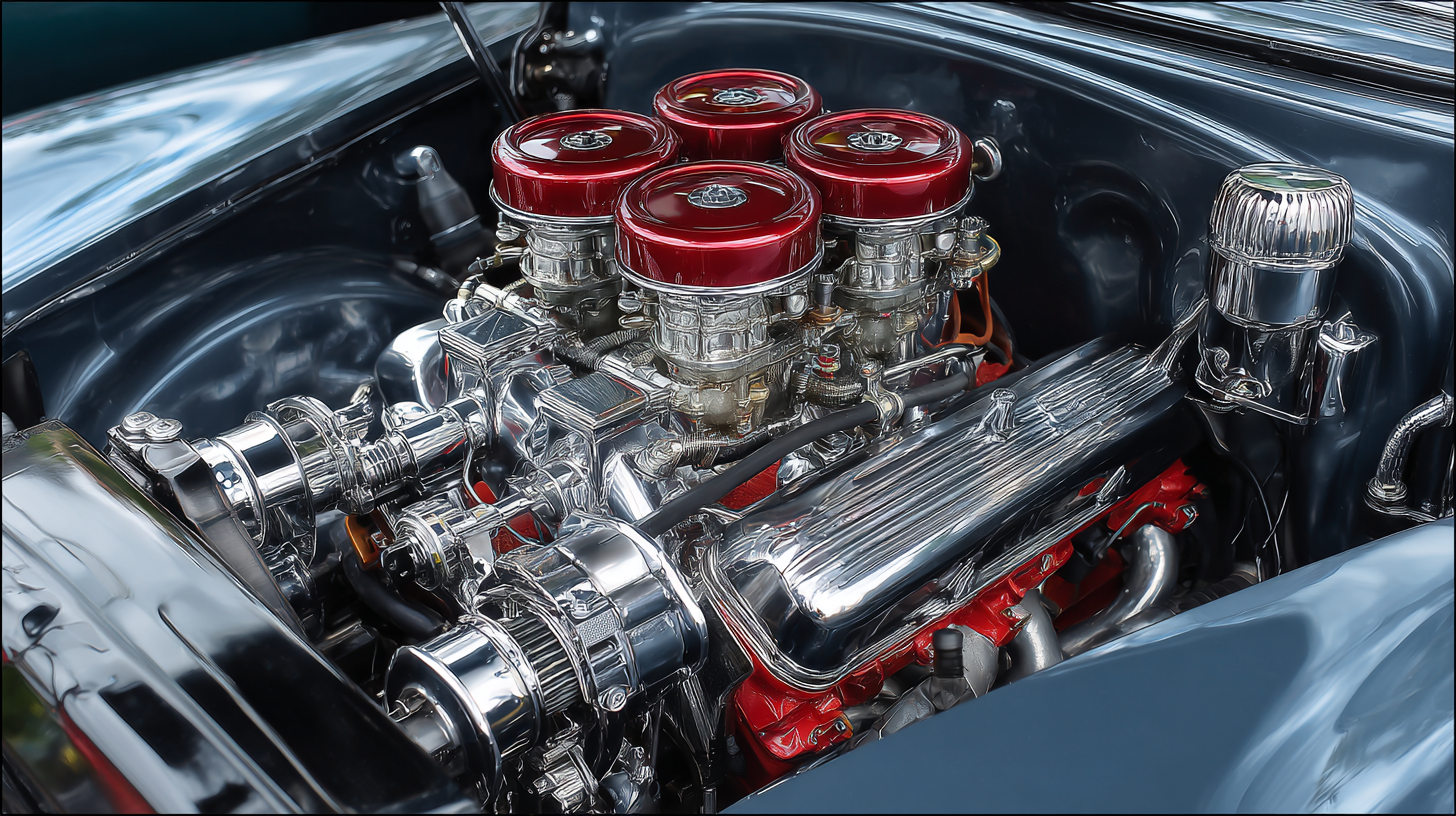 Understanding the role of the Engines Cooler
in vehicle performance and longevity is crucial for both enthusiasts and everyday drivers.
According to a report by the Society of Automotive Engineers, effective thermal management can improve engine efficiency by as much as
20%, significantly reducing fuel consumption and emissions.
An optimized Engines Cooler system not only ensures that the engine operates within its ideal temperature range but also extends
its lifespan by minimizing wear and tear caused by overheating. The American Society of Mechanical Engineers
highlights that approximately 40% of engine failures can be attributed to ineffective cooling systems.
With advancements in automotive technology and engineering, understanding and maintaining an efficient Engines Cooler is paramount in achieving
peak vehicle performance and enhancing overall reliability on the road.
Understanding the role of the Engines Cooler
in vehicle performance and longevity is crucial for both enthusiasts and everyday drivers.
According to a report by the Society of Automotive Engineers, effective thermal management can improve engine efficiency by as much as
20%, significantly reducing fuel consumption and emissions.
An optimized Engines Cooler system not only ensures that the engine operates within its ideal temperature range but also extends
its lifespan by minimizing wear and tear caused by overheating. The American Society of Mechanical Engineers
highlights that approximately 40% of engine failures can be attributed to ineffective cooling systems.
With advancements in automotive technology and engineering, understanding and maintaining an efficient Engines Cooler is paramount in achieving
peak vehicle performance and enhancing overall reliability on the road.
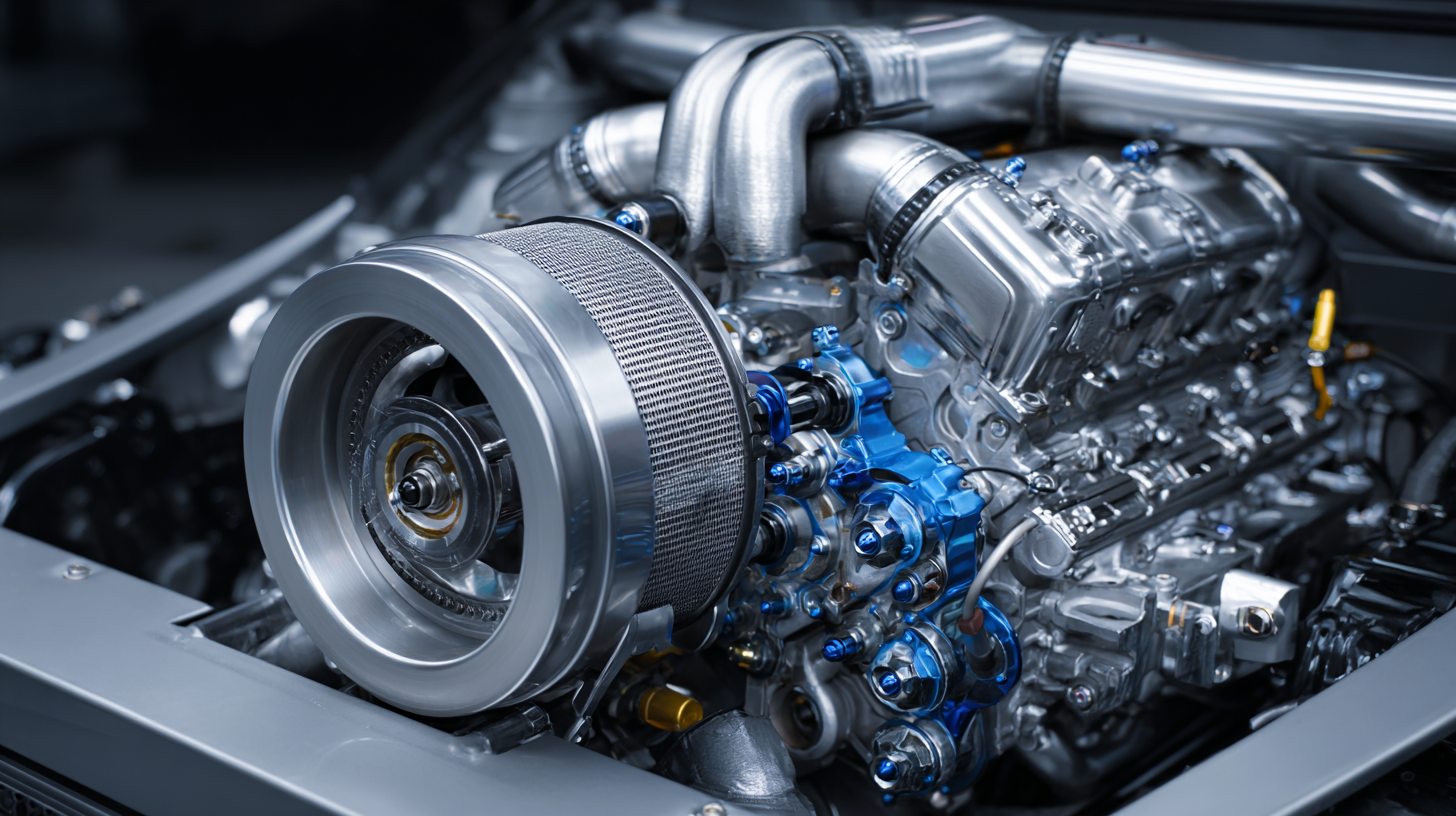 Engine coolers play a pivotal role in enhancing vehicle efficiency by maintaining optimal operating temperatures. According to a report by the Society of Automotive Engineers, a well-functioning engine cooler can improve fuel efficiency by up to 5% by preventing overheating and ensuring that the engine can perform at its best. When the engine operates within its ideal temperature range, it not only maximizes power output but also reduces wear and tear on critical components, ultimately extending the vehicle's lifespan.
Engine coolers play a pivotal role in enhancing vehicle efficiency by maintaining optimal operating temperatures. According to a report by the Society of Automotive Engineers, a well-functioning engine cooler can improve fuel efficiency by up to 5% by preventing overheating and ensuring that the engine can perform at its best. When the engine operates within its ideal temperature range, it not only maximizes power output but also reduces wear and tear on critical components, ultimately extending the vehicle's lifespan.
To ensure your engine cooler is functioning optimally, routine maintenance is essential. Check the coolant levels regularly and look for any leaks in the cooling system. Keeping the engine cooler clean can also significantly impact performance. Dust and debris can obstruct airflow, leading to inefficient cooling and potential overheating.
Tips: Always use the manufacturer-recommended coolant for your vehicle, as this can greatly enhance cooling efficiency. Additionally, consider investing in a high-quality aftermarket engine cooler if you're aiming for performance upgrades, as these can provide better temperature regulation and durability under extreme conditions.
The performance and longevity of an engine cooler are critical to ensuring a vehicle operates efficiently. Understanding the key factors that affect these components can enhance overall vehicle reliability and performance. One significant influence is the quality of the automotive coolant used. A robust automotive coolant not only facilitates effective heat transfer but also prevents corrosion, which can lead to engine wear over time. The projected growth of the automotive coolant market highlights a rising awareness of its importance among vehicle manufacturers and consumers alike.
Another essential aspect is regular maintenance, which ensures that the engine cooler functions optimally. Factors such as regular inspections and coolant replacements can prolong the lifespan of engine coolers. For instance, contaminants in the coolant can decrease its efficacy, leading to overheating and potential engine damage. Therefore, adopting proper maintenance strategies is vital.
**Tips for Maintaining Engine Coolers:**
- Regularly check and replace your vehicle's coolant as recommended in the owner’s manual.
- Inspect the engine cooler for any leaks or signs of wear and address issues promptly.
- Use high-quality coolant products designed for your specific vehicle type to maximize performance.
This bar chart illustrates key performance metrics of engine coolers, including coolant temperature, engine temperature, ambient temperature, cooler efficiency, and expected lifespan. Understanding these factors is essential for optimizing vehicle performance and longevity.
Maintaining the engine cooler is crucial for optimizing vehicle performance and longevity. A well-functioning engine cooler ensures that the engine operates within the ideal temperature range, which is typically between 195°F to 220°F (90°C to 104°C) for most vehicles. When the engine temperature exceeds this range, it can lead to overheating, reduced performance, and long-term damage. Regular checks on the coolant levels and condition can help prevent these issues. According to a recent automotive maintenance report, approximately 30% of engine failures are attributed to cooling system malfunctions, highlighting the necessity for consistent oversight.
To maintain optimal engine cooler functionality, owners should follow a step-by-step maintenance checklist. This includes regularly inspecting the coolant for signs of contamination, checking hoses for wear and leaks, and ensuring that the radiator cap is sealed correctly. Additionally, flushing the cooling system every two years can help remove any build-up of rust or scale, which can impede cooling efficiency. This preventative maintenance approach not only extends the life of the engine but also enhances overall vehicle safety, with top recommendations suggesting that failure to maintain coolant systems can significantly increase the risk of breakdowns, especially in extreme temperatures.
| Maintenance Task | Frequency | Expected Outcome | Tips |
|---|---|---|---|
| Check coolant level | Monthly | Ensures efficient cooling | Top up with recommended coolant |
| Inspect coolant hoses | Every 6 months | Prevent leaks and overheating | Look for cracks or swelling |
| Flush coolant system | Every 2 years | Removes sludge and debris | Use correct flushing solution |
| Examine engine cooler | Annually | Ensures proper operation | Check for corrosion and damage |
| Replace thermostat | As needed (if faulty) | Regulates engine temperature | Choose quality replacement parts |
A well-functioning engine cooler is vital for maintaining optimal vehicle performance and longevity. Signs of engine cooler failure can manifest in various ways, including increased engine temperature, coolant leaks, or a milky substance in the engine oil, often indicating oil contamination from the cooler. These symptoms can lead to significant damage if not addressed promptly. Regular inspections and maintenance of the cooling system can help mitigate issues before they escalate.
Tips: Monitor your vehicle's coolant levels consistently and look for any signs of overheating during regular drives. If you notice any unusual temperatures or leaks, consider conducting a pressure test on the cooling system to detect any hidden issues. Experts recommend that vehicle owners should periodically flush the coolant system to ensure optimal performance, especially in vehicles with high mileage or specific engine configurations known for cooling issues.
With the rise of advanced engine systems, such as EGR engines, staying proactive can prevent costly repairs. For instance, early detection of hydraulic lifter failures in newer diesel engines can save owners from potentially catastrophic failures that lead to engine replacements costing upwards of $25,000. Regular maintenance checks using reliable diagnostic tools can help identify these problems early, ensuring smoother operation and increased vehicle lifespan.
Advancements in engine cooler technology are crucial for enhancing vehicle performance and extending the lifespan of automotive engines. As cars become more sophisticated, the demand for effective thermal management systems has risen, leading to innovative upgrades in engine coolers. These innovations not only improve cooling efficiency but also contribute to better overall engine performance, allowing vehicles to operate at optimal temperatures even under demanding conditions.
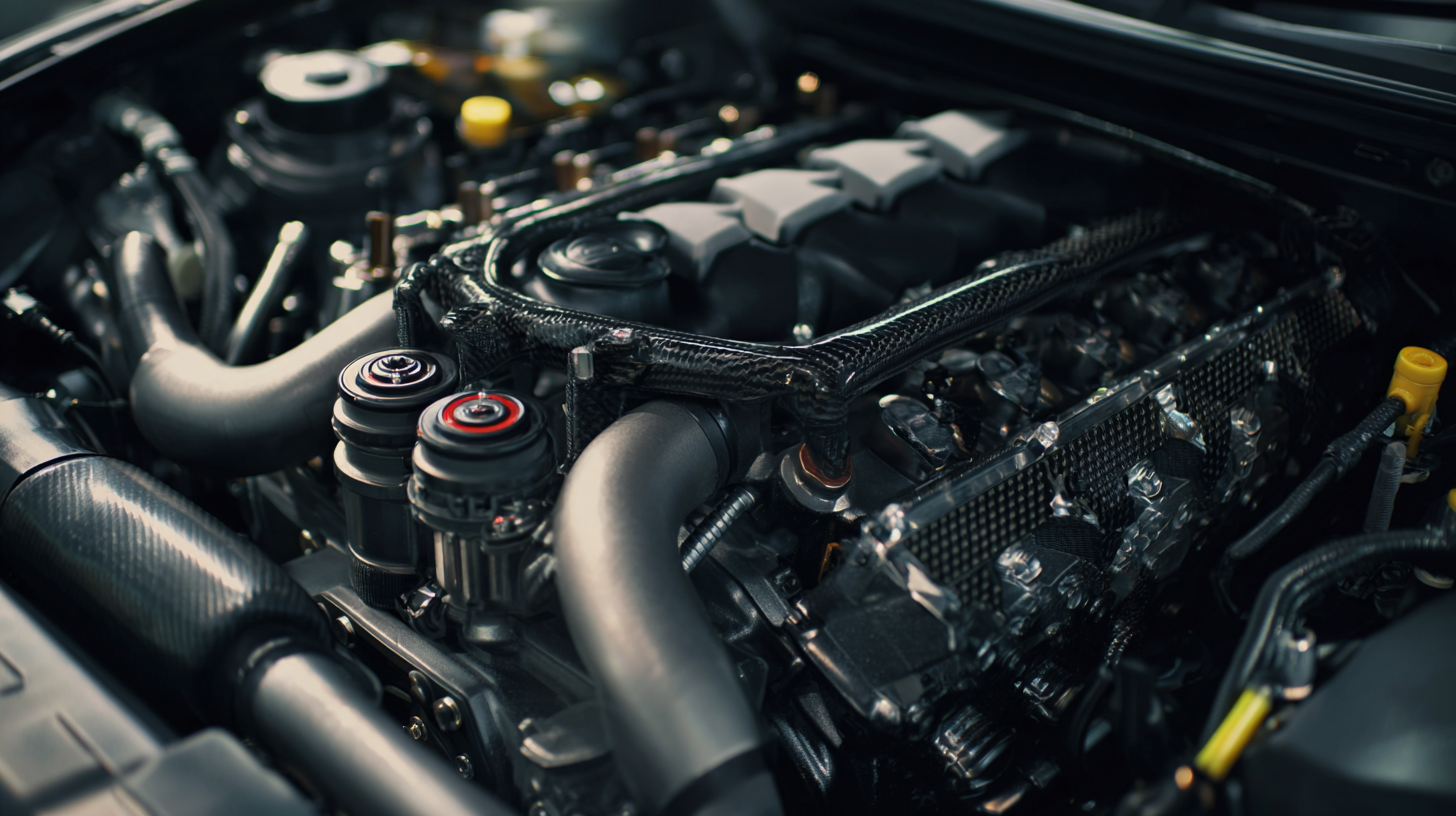
Recently, companies are recognizing the importance of maintaining innovation in their product lines to add value for consumers. The focus on developing advanced engine coolers that integrate seamlessly with modern automotive systems underscores the industry's commitment to improving longevity and reliability. With new materials and designs emerging in the market, enhanced thermal regulation can significantly reduce engine wear and tear, ultimately benefiting consumers through lower maintenance costs and increased vehicle durability.
